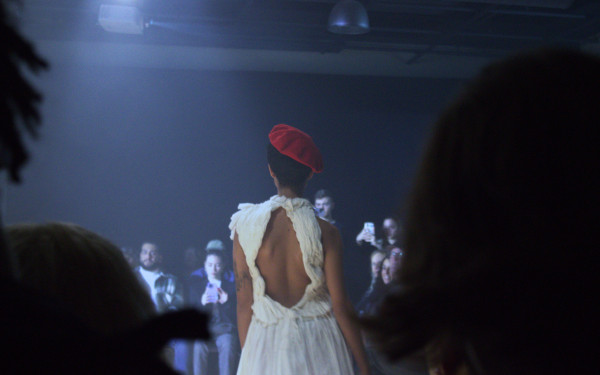Montreal Zero Waste Festival: From the Community, For the Community
Association Québécoise Zéro Déchet Hosts its Largest Sustainability Event to Date
The weekend of Nov. 8 marked the third annual Zero Waste Festival at Marché Bonsecours.
Hosted by the Association Québécoise Zéro Déchet, it brought together zero-waste artisans and companies to have an all encompassing event on low waste living. The festival served as a safe space for the zero waste community and a place to inform others of the movement.
Several conferences were hosted over the weekend, including one by Mélissa De La Fontaine, author of Tendre vers le zéro déchet. She talked about the trials and tribulations of transitioning into a zero waste lifestyle.
They screened Odyssée sous les glaces, a film about the ice caps and its wildlife. It depicted the effects of climate change on the polar environment and the planet as a whole.
There were panels such as “Zero Waste in Sports,” where the organizers of the Harricana trail race and the Change the World race spoke about reducing waste during those races.
They also included sustainable and low waste artisanale products such as clothes, beauty products, kitchen utensils, and more.
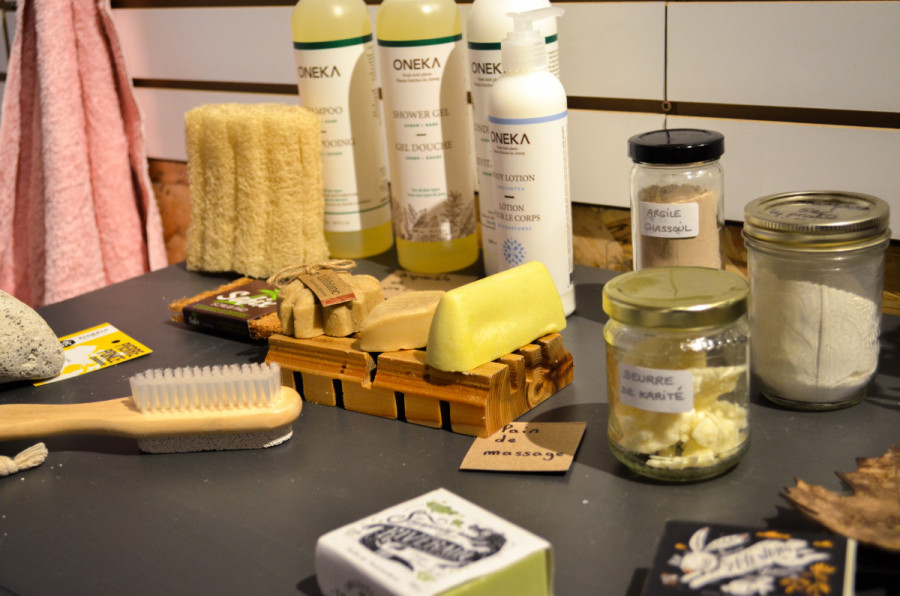
The co-founder of the event and of the Association Québécoise Zéro Déchet, Cynthia Bouchard-Gosselin, says the idea of this festival came to her during conversations she had on social media groups.
With growing enthusiasm in the sustainability community, Bouchard-Gosselin told herself: “There’s a lot of speakers and people talking about zero waste, why not organize a festival where all these people are under the same roof?”
That’s exactly what she did.
Marie-Eve Lupien, founder of Bateau Bateau, a reusable tissue paper company, talks about how she tries to only come to events such as this one. When she goes to other artisan shows, she finds the attendees don’t understand the zero-waste movement and aren’t as receptive to her product. She says that the people at the Zero Waste Festival: “Are more open, which is fantastic. They understand right away that it’s washable and that it could be for them.”
The event was beneficial to new companies such as Ethically Warm, founded by Alexandra Gavrila. The company makes “sustainable, vegan, and biodegradable outerwear,” says Gavrila. She attended the event because she wanted people to know that “we’re here and we exist.” She was also looking for feedback and wanted to see how the product would be received.
Bach Nguyen, founder of the year old company Tre Bamboo, got to “meet a lot of [their] ambassadors and retailers” at the festival. The Bamboo produces straws, toothbrushes, and utensils are made out of bamboo and coconut as an alternative to plastic.
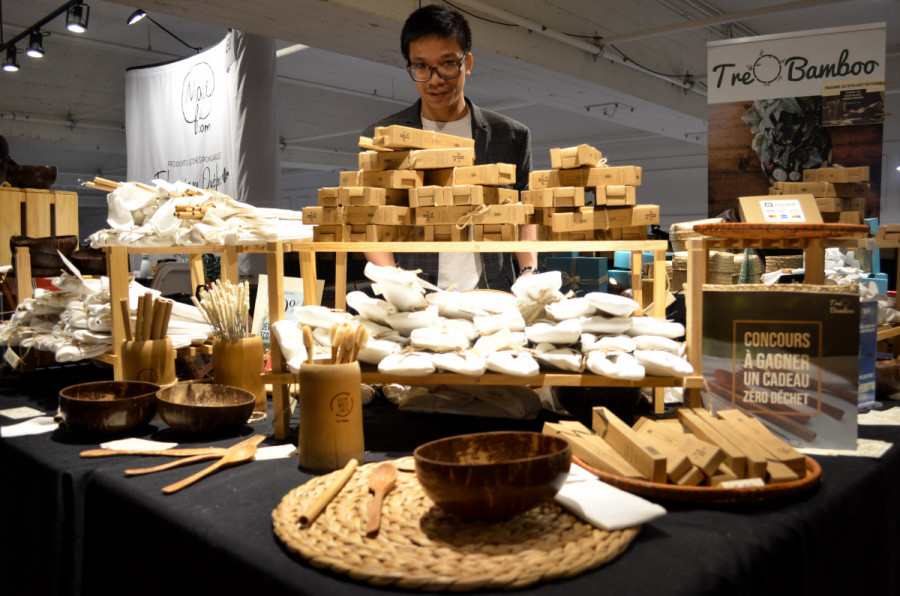
Bouchard-Gosselin recognizes the rapid growth of the event through the years. Originally when planning the first event three years ago, she intended to have it in a church basement. Due to the enthusiasm from the zero-waste community, they had to move it to a larger location.
It only got better from there.
By the second year they had to double the amount of space for the event. This year they were able to add an extra day to the festival.
While her event has attracted people outside of Montreal, she says she wants to continue to “spread the word of zero waste to the larger community.”
The festival not only raised awareness about living more sustainably, it also created a safe space for people who are already part of the movement to share knowledge and inform themselves of new zero waste resources.
In a way this festival was not only meant to grow the community, it was also a way to strengthen those who were already a part of it.

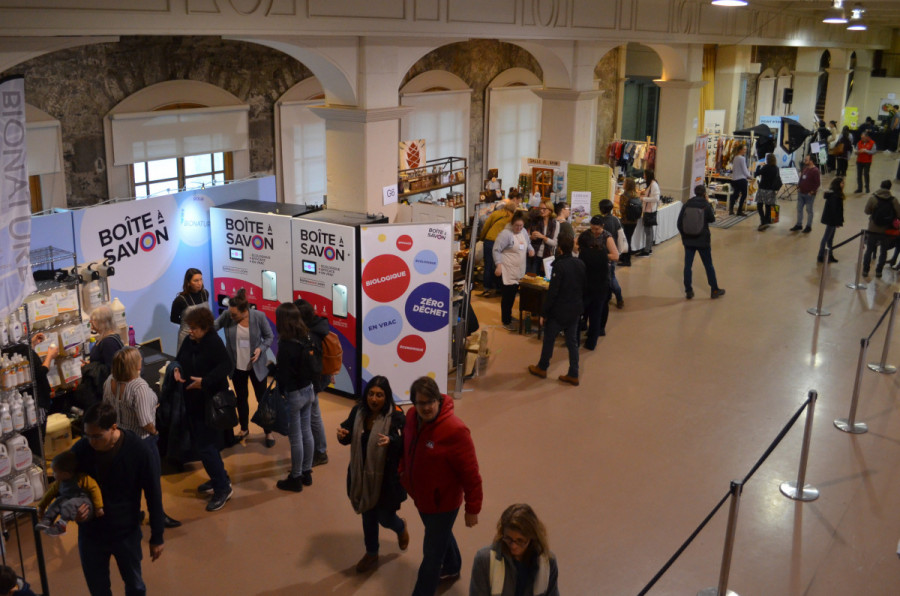
_600_832_s.png)

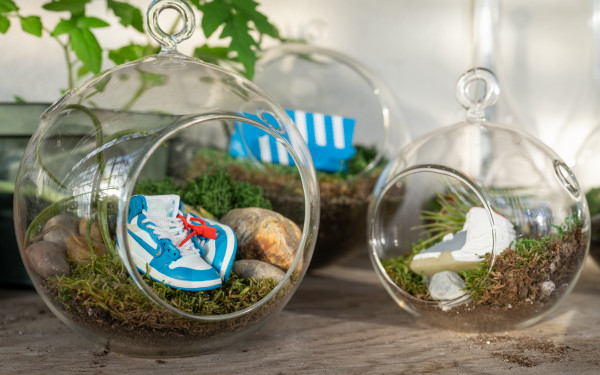
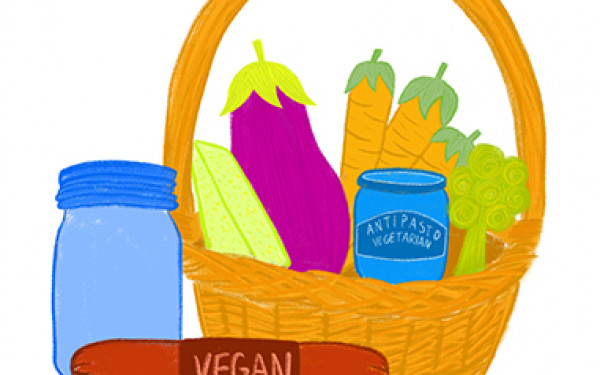
_1_600_375_90_s_c1.jpg)
